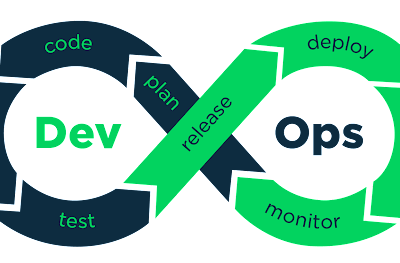In distributed systems, reliability and high availability have always been top priorities. Providing highly accessible and dependable cloud computing services is critical for retaining client confidence and satisfaction while avoiding revenue losses.
Today, businesses have been driven to explore innovative alternative technological solutions. Cloud computing is one of these technologies, focusing on expanding processing capacity to execute millions of instructions per second.
Cloud computing is reliable and has several advantages for your company. It enables you to set up what is a virtual office. It also gives you the freedom to connect to your business from anywhere, at any time. Access to your data is becoming much simpler.
This is possible with the expanding number of web-enabled devices utilized in today’s work environment (e.g., smartphones, tablets). With thorough research, I have come up with a list of 8 proven reasons that make cloud computing more reliable.
Cloud Computing Defined
Cloud computing is the transmission of computer services such as servers, storage, databases, networking, software, analytics, and intelligence through the Internet (“the cloud”). It aims to provide faster innovation, more flexible resources, and economies of scale.
Cloud computing enables people to benefit from new technology without the requirement for specialized knowledge. Streaming services (Netflix), games (Fortnite), and document/email services are some instances of Cloud Computing (Gmail, Google Docs).
Reducing capital expenses, improving system reliability, and providing greater flexibility and scalability are the main functions of cloud computing.
Top 8 Reasons to Use Cloud Computing Over Traditional Computing:
Insight and Data Collection:
Millions of pieces of data that surround client interactions and corporate activities contain nuggets of valuable information. What they want is to be recognized and handled.
Many cloud-based storage systems include cloud analytics to provide a birds-eye perspective of your data. With your data in the cloud, you can quickly deploy tracking systems and create customized reports to analyze data throughout your organization.

You may use these insights to boost efficiency and create action plans to accomplish organizational goals.
Flexible Solution:
Cloud computing allows organizations of all sizes to be more flexible. They can effortlessly scale up or down computer resources depending on their demands and budget. This applies to whether they need additional bandwidth, processing power, or storage space.
Employees can be more flexible in their work habits with cloud computing. You can access data from home, on vacation, or on your way to or from work with an internet connection. This increased freedom and flexibility can have a substantial impact on your organization’s overall efficiency.
Data Security:
Today, data security is a big concern for enterprises. Cloud suppliers offer extensive security capabilities like authentication, access management, data encryption, and so on. This guarantees that sensitive data is handled and kept safely in the cloud.
As an extra security safeguard, most cloud-based services allow users to configure multiple security settings. This makes working or accessing confidential documents of your company anywhere, much safer and more reliable.
Enhanced Collaboration:
Cloud apps enable organizations to interact effortlessly while also securely accessing and sharing information, making collaboration simple and painless. Cloud computing allows numerous people to edit papers or work on files concurrently and transparently.
Team members may simply and securely see and share information over a cloud-based platform. Some cloud-based platforms even offer collaborative social areas to link employees throughout your organization, raising interest and engagement.
Regular Updates:
Manually updating software throughout a company may consume a significant amount of IT staff time. However, service providers continually renew and update systems with the most recent technology, with cloud computing. Providing organizations with the most up-to-date software, servers, and processing capability is carried out with this renewal system.
Instead of requiring IT personnel to make a manual organization-wide upgrade, cloud-based apps automatically refresh and update themselves. This saves important IT employees time and money that would otherwise be spent on outside IT consultancy.
Environment Sustainability:
It is no longer sufficient for businesses to set up a recycling bin and claim that they are helping the environment. True sustainability necessitates solutions that address wastefulness at every level of a company. Cloud hosting is more ecologically friendly and has a lower carbon impact.
Cloud infrastructures highly promote environmental sustainability. It is responsible for the powering of virtual services rather than actual items and hardware. Cloud computing significantly reduces paper waste, improves energy efficiency, and reduces computer-related emissions (Work-from-home).
Highest ROI:
Cloud computing may help you enhance your ROI by lowering a variety of expenditures, including capital and operating costs. Cloud computing eliminates the need to acquire servers for in-house usage. This results in cheaper data center expenses and a higher return on investment.
So, rather than buying large servers, you can enjoy low-cost server provisioning with the economies of scale that cloud providers can accomplish. Another cost-cutting advantage of using cloud providers to provide servers is that you eliminate maintenance expenditures.
Loss Prevention and Disaster Recovery:
Computers can fail for a variety of causes, ranging from virus infections to age-related hardware degeneration to simple human mistakes. However, the cloud-based server protects all of the data you’ve transmitted to the cloud. It is accessible from any computer with an internet connection.
Also, while there is no way to prevent or even predict calamities, there is something that can speed up your recovery. Cloud-based services provide rapid data recovery in a variety of emergencies, from natural catastrophes to power outages.
Conclusion
Cloud computing popularity is increasing year after year, and it’s easy to understand why. Enterprises understand the benefits of cloud computing and how they affect production, collaboration, security, and income.
Many organizations rely on the cloud for storage, backup, and data recovery. It makes storing vast volumes of data simple and convenient without worrying about IT growth or infrastructure.
An enterprise may avoid several challenges that affect firms that rely on on-premises technology by using a cloud-based solution. It has become the most reliable problem-solver for companies’ data storage and recovery issues.





